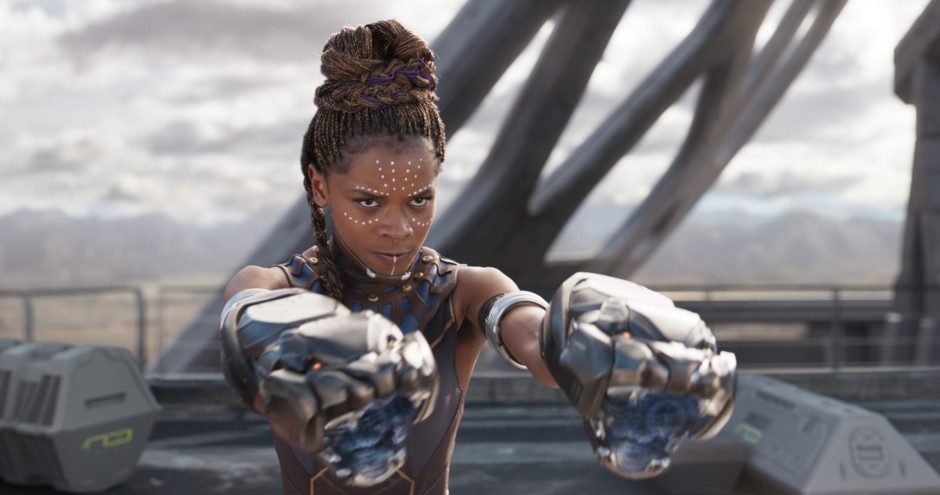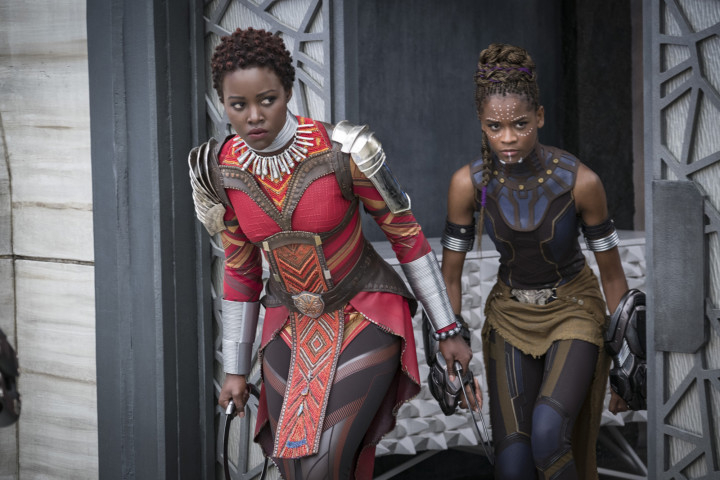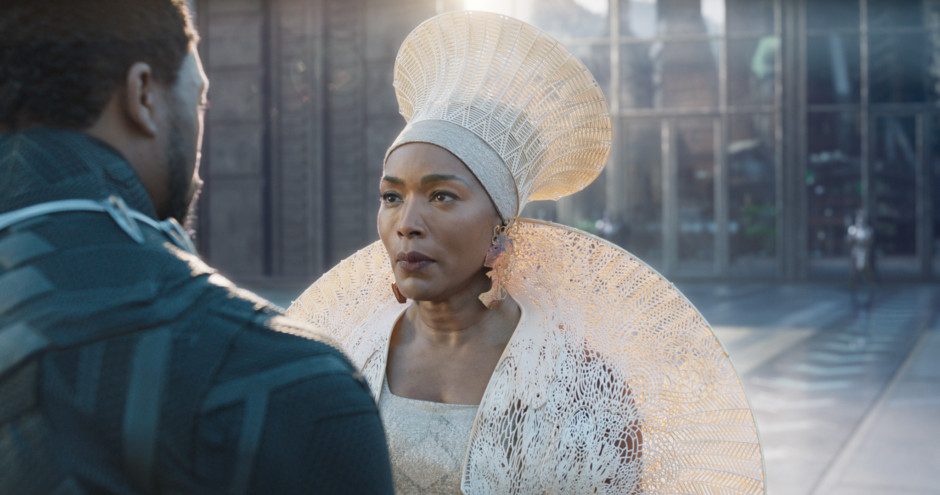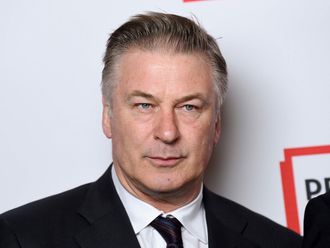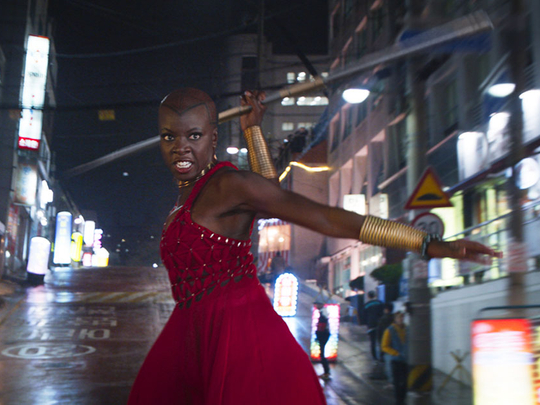
In Marvel’s Black Panther, when King T’Challa, played by Chadwick Boseman, calls upon his team of heroes, it’s not the Avengers who assemble around him but the strong, complex women of Wakanda. They are brave warriors, brilliant scientists, fearless spies and queens.
Eighteen films into Marvel’s blockbuster franchise they’re long overdue, arriving in a Black Panther origin tale that also breaks ground as the first standalone film of the modern Marvel era to be led by a black superhero.
Oscar-nominated actress Angela Bassett plays Queen Ramonda, mother to newly crowned T’Challa, who ascends to the throne of the fictional African nation of Wakanda — and inherits the superpowered mantle of Black Panther, protector of his people — after the death of his father in Captain America: Civil War.
“In African culture they feel as if there is no king without a queen, and I think this story highlights the queen, the warrior, the general and the young sister,” Bassett said.
Seeing black representation portrayed on-screen at the film’s world premiere was a powerful experience, she said. “I was so proud to have my daughter and my son there, because in their faces and in their spirits they were feeling themselves — and they stood taller after last night.”
Written and directed by Creed helmer Ryan Coogler (with co-writer Joe Robert Cole), Black Panther also features a strong female presence behind the scenes.
“This film had involvement from brilliant women from all over start to finish,” said Coogler, who made a point to name several of his female collaborators, including Oscar-nominated cinematographer Rachel Morrison, Oscar-nominated costume designer Ruth E. Carter, production designer Hannah Beachler, first assistant director Lisa Satriano, editor Debbie Berman and Marvel Studios exec Victoria Alonso, who executive produced.
“They weren’t hired because they were women but because they were the best for the job,” he said. “I was incredibly blessed to have these people and their perspectives, and to have their fingerprints all over it.”
Critics have hailed the breadth and depth of its new-to-the-Marvel Cinematic Universe characters, from Michael B. Jordan’s compelling villain Erik Killmonger, to Lupita Nyong’o’s principled spy Nakia, to the effervescent Shuri, T’Challa’s brilliant kid sister, played by scene-stealing British actress Letitia Wright.
The Walking Dead’s Danai Gurira, who lends bold presence to Okoye, head of King T’Challa’s elite team of female bodyguards, said she was “floored” by Coogler’s vision for the women of Wakanda because of how rare strong roles like these are.
Her Okoye, like all members of the Dora Milaje, wears her head shaven and tattooed with traditional markings — and while the initial shock of the character’s look took a few days to get used to, a sense of honour followed when her fellow Dora Milaje cast mates followed suit.
“The pride started to grow — the pride around it, and of embracing of this symbol of power in these women,” said a beaming Gurira. “Her joy, her pride, is in walking with that bald head with that tattoo on it. It’s so subversive, and it’s subversive in the right ways. You don’t have to have hair to be beautiful.”
For Wright, empowerment was similarly written into the character of Shuri, Wakanda’s resident millennial tech genius. As the Q to Black Panther’s James Bond, it’s Shuri who designs much of the next-gen technology that powers the isolated nation — including deadly weapons powered by the Wakandan metal vibranium that T’Challa must prevent from falling into the wrong hands.
She praised the Black Panther script for positioning the relationship between T’Challa and Shuri as one in which the superhero king uplifts and celebrates his sister’s abilities.
“T’Challa is like, ‘Go ahead, this is your department, this is your domain,’” Wright said. “That’s the mentality of a king, and that’s brilliant.”
It’s both freeing and powerful to depict such a range of strong female characters who aren’t competing with one another to boot, said Nyong’o.
“What I love about the way this film represents women is that each and every one of us is an individual, unique,” she said. “We all have our own sense of power and our own agency and we hold our own space without being pitted against each other. And I think that’s a very, very powerful message to send to children — both male and female.”
It’s an empowering vision.
“[We] really get a sense of the fabric of Wakanda as a nation,” Nyong’o added. “We see women alongside men, and we see how much more effective a society can be if they allow women to explore their full potential.”



